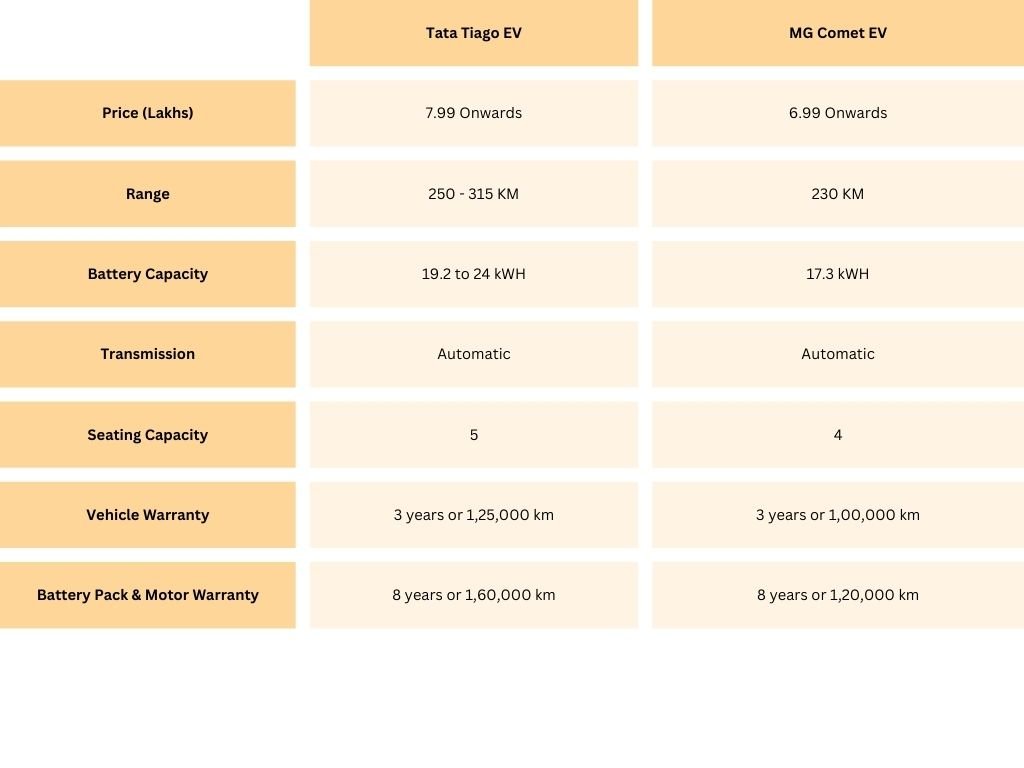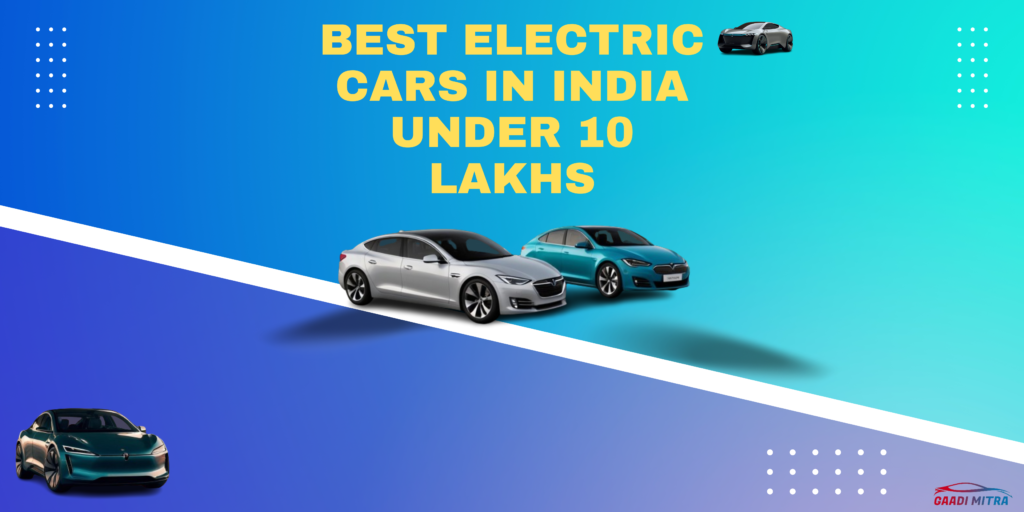In this blog we bring you the best electric cars in India under 10 lakhs. So, fasten your seatbelts, and let’s explore these incredible machines that will make you the envy of the road.
A. Introduction
Whether you are a first time car buyer or someone looking to upgrade their car, finding the perfect car that fits your budget is not an easy task. The Indian market offers a wide range of options when it comes to budget friendly cars.
B. Unveiling the Top Contenders: Your Electric Dream Team Under 10 Lakhs
Forget superhero movies, the real champions are here, silently gliding through our streets! Let’s delve into the strengths and quirks of each top contender, helping you find your perfect electric match within the 10-lakh limit:
-
Tata Tiago EV: The Budget-Friendly Champion:
- A Familiar Friend with a Twist: Remember the popular Tiago? Its electric avatar arrives with the same spacious comfort and user-friendly Zest technology, making it ideal for city commutes and family outings. Think smooth rides, effortless parking, and the thrill of zipping through traffic without guzzling petrol.
- Affordability Meets Eco-Friendliness: This is the undisputed king of budget EVs, with a price tag that won’t make your savings cry. And the best part? You’ll be saving the planet one silent drive at a time. Plus, government subsidies can sweeten the deal even further!
-
MG Comet EV: The Tech-Savvy Head turner:
- Sporty Style and Connected Smarts: Get ready to turn heads with the Comet’s sleek design and futuristic vibes. This car isn’t just about looks, though. It’s packed with cutting-edge features like connected car technology, letting you control everything from temperature to charging remotely. Imagine pre-cooling your car during a scorching summer day – pure magic!
- Longer Range, Faster Charge: While the Tiago excels in city commutes, the Comet stretches its legs further, offering a more generous range for weekend adventures. Add in its rapid charging options, and you’ve got a car that’s built for exploration and convenience.
C. Key Features and Specifications
Let’s break down the key stats of our top contenders into a clear and easy-to-digest comparison table, helping you identify which champion aligns best with your needs:

D. Electric Vehicle FAQs: Answers to Your Top Inquiries
Thinking about switching to an electric vehicle (EV) however make them wait questions? We take care of you! This FAQ area tends to the absolute most normal worries with respect to electric vehicles in India.
1. What are the different types of electric cars?
There are three main types of electric cars available in India:
- Battery Electric Vehicle (BEV): Runs completely on power stored in a battery pack. Needs to be plugged in for charging.
- Plug-in Hybrid Electric Vehicle (PHEV): Combines a battery pack with a gasoline engine. Offers a limited electric-only range but can switch to gas for longer trips.
- Mild Hybrid Electric Vehicle (MHEV): Uses a small electric motor to assist the gasoline engine, improving fuel efficiency, further developing eco-friendliness but not offering a independent electric driving mode.
2. What is the driving range of an EV on a single charge?
The driving range of EVs varies depending on the model and battery size. In India, most EVs under 10 lakhs offer a range between 150-300 kilometers on a single charge.
3. How long does it take to charge an EV?
Charging times rely upon the battery size and the type of charger used. Slow chargers (frequently utilized at home) can take 6-8 hours for a full charge, while fast chargers can top up the battery to 80% in under 60 minutes.
4. Are EVs expensive to maintain?
EVs generally have lower maintenance costs compared to gasoline cars. They have fewer moving parts, and electric motors require less servicing than gasoline engines.
5. Where can I charge my EV?
Charging infrastructure is growing rapidly in India. You can charge your EV at home utilizing a customary fitting point (slow charging) or a dedicated EV charging station (quicker charging). Public charging stations are opening up in cities and along major highways.
6. Are EVs environment-friendly?
Electric vehicles themselves produce zero tailpipe outflows, making them a cleaner option in contrast to gasoline vehicles. However, the environmental impact depends on the source of electricity used for charging.
7. Are there any government incentives for buying EVs in India?
Yes, the Indian government offers various subsidies and tax benefits for purchasing EVs. These incentives can significantly reduce the upfront cost of buying an electric car.
8. Is it safe to drive an EV in rain or water?
Electric vehicles are intended to be alright for activity in every weather pattern, including rain and water.
9. What happens to the used batteries in EVs?
EV batteries are recyclable, and producers are growing better reusing cycles to lessen ecological effect.
10. Are EVs powerful enough for highway driving?
Numerous advanced EVs offer noteworthy speed increase and power, making them appropriate for expressway driving. However, always consider the charging infrastructure availability on your planned route.
We hope this FAQ section has helped clarify some of your doubts about electric vehicles. If you have any further questions, feel free to leave a comment below!

